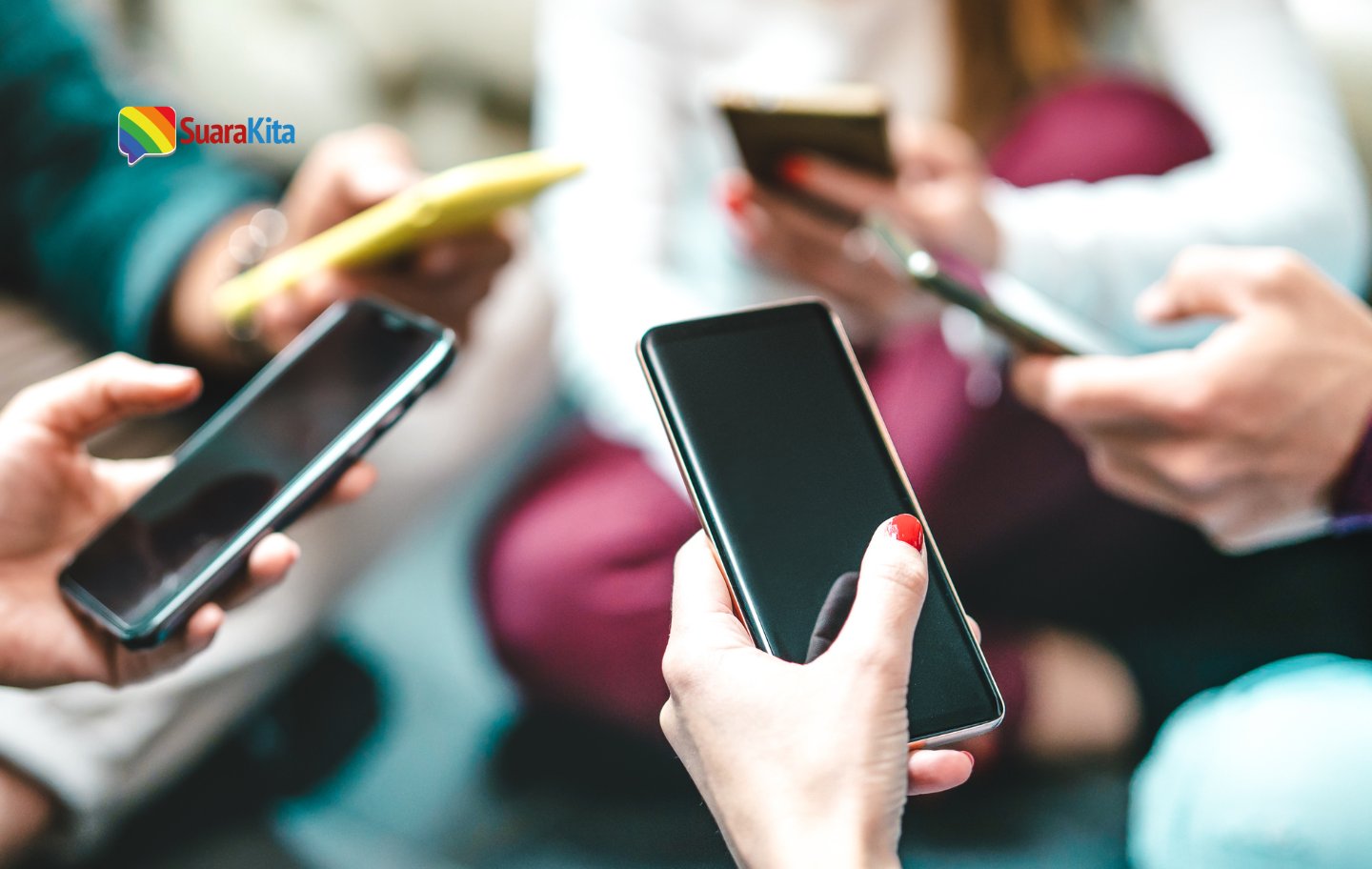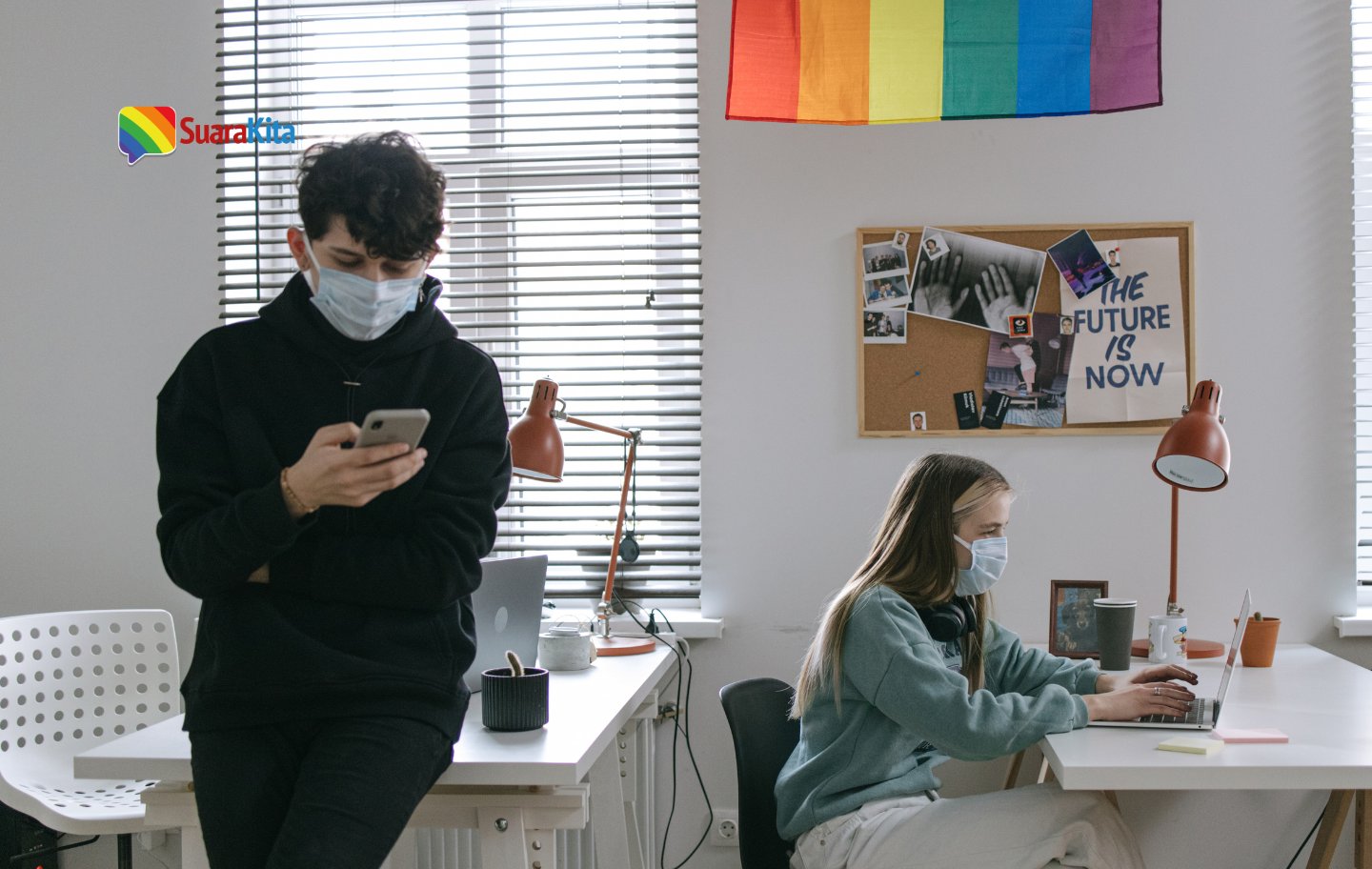Sudan, Afrika Utara. Sebuah majalah LGBT online baru saja diterbitkan di Negara yang menerapkan Hukuman Mati bagi pasangan sesama Jenis.
Sudan adalah salah satu Negara yang mengkriminalisasikan LGBT , aktifitas cinta sesama jenis adalah bentuk kriminal dan illegal. Dalam pasal 148, dikatakan bahwa bagi siapa saja yang melanggar aturan tersebut akan dikenakan hukuman mati, juga termasuk di dalamya adalah hukuman cambuk dan penjara. Selain hukuman yang sangat kejam tersebut, konsekuensi lain yaitu hilangnya akses ekonomi dan sosial (tidak mendapatkan akses pekerjaan).
Ibrahim, 32 tahun seorang tokoh publik, mengatakan, “Internet adalah garis hidup saya, saya bisa berinteraksi dengan banyak orang, saya harus berhati-hati. Resiko penangkapan merupakan resiko yang sangat mungkin saya alami.”
Mohamed, seorang Editor berusia 46 tahun, ia telah menikah selama 12 tahun, memiliki tiga putra. Mengatakan, “Hidup saya bagaikan di neraka, kadang saya keluar malam untuk bisa melepas diri dari “penjara” kehidupan, untuk bisa melepas kekesalan terhadap peraturan yang berlaku di negara ini.”
Cinta sesama jenis dianggap “ penyakit dan penyakit.” Suatu ketika saya pergi untuk diterapi, mencoba “menyembuhkan” diri ini, Tetapi itu tidak merubah apapun, dan membuat saya semakin tertekan. Tapi di sisi lain, rasa takut menghantui saya karena hukum di negeri ini teramat sangat kejam.
Soso, seorang lesbian berusia 35 tahun yang bekerja sebagai penata rambut, mengatakan: “Meskipun begitu banyak kesulitan, namun komunitas LGBT di Sudan tetap ada, Tapi masyarakat pada umumnya tidak terbuka untuk ide ini, menganggap homoseksualitas sebagai “prilaku setan.” Tapi saya tetap yakin bahwa menjadi seorang lesbian adalah pilihan saya, dan saya tidak akan pernah merubah pilihan saya.
Mohammad menekankan, suara-suara yang terlontar dari LGBT Sudan menunjukkan bahwa masyarakat masih menganggap homoseksualitas sebagai “fenomena,” bukan kenyataan. Dan yang paling miris adalah bahwa banyak LGBT yang masih terbawa oleh pandangan masyarakat yang menyatakan kalau LGBT adalah suatu “sakit.” Padahal seharusnya para LGBT Sudan sadar, bahwa Homoseksuliats bukanlah sebuah “Penyakit.”
“Kami akan membahas apa artinya kita menjadi gay, lesbian, biseksual dan transgender di Sudan, dan kami akan membahas Hukum Islam dan membuka ruang dialog tentang agama dan hukuman yang mengancam.
Dengan membuka ruang dialog kepada kawan-kawan LGBT melalui media online, kami berharap isu-isu Negatif seputar LGBT dapat kami kikis perlahan-lahan. Mengangkat hal yang dianggap tabu untuk diubah menjadi hal yang biasa dan layak diperbincangkan memang menjadi tantangan kami, semoga capaian yang didapatkan sesuai dengan harapan”. Ungkap Muhammad sambil tersenyum.
Sumber berita : pinknews.co.uk
sumber ilustrasi : madikazemi.blogspot.comA new online LGBT magazine in Sudan, north Africa, will offer an opportunity for the country’s gay people to start discussing their lives and hopes for the future. This is a first for the country, where homosexuality is still punishable by death.
Rainbow Sudan publishes articles discussing topics including being gay in Sudan, the history of homosexuality in the country, Islam and sexuality, being lesbian and Muslim, poetry and more.
Sudan is one of the strictest countries in the world to criminalise homosexuality. Same-sex sexual activity is illegal and, according to Article 148, capital punishment applies to a man or woman engaging in such acts.
Punishments also include lashes and imprisonment.
Even without that, being out can have serious social and economic consequences – it typically means a loss of job prospects, ostracisation from family and community or even murder (so-called “honour killings”).
We spoke to Rainbow Sudan editor Mohammad and other Sudanese gays and lesbians about the magazine and their life in Sudan.
Mohammad is a 32-year-old man living in the Sudanese capital, Khartoum. He is energetic, comfortable about his sexuality, full of charm and wit. He also has a scholarly side; he loves poetry, history and sociology.
He told us that “to understand the gay community in Sudan you have to understand the religious factor here . . . it is a big taboo and regarded one of the biggest sins possible.”
Ibrahim, also 32 years old and a well-respected public figure, explained what that taboo means in practice: “If you are outed in Sudan the consequences are very serious: social rejection and even punishment according to the Sudanese law.
“The internet is my only lifeline, I can talk with people, learn about LGBT issues and occasionally arrange to meet people. I have to be so careful. If I were to be caught, exposed or worse, arrested, it would ruin me completely.”
Mazen is 28 and manages to live his life but has to be careful: “There are places to meet in Khartoum which are well known, and there are even police and military men who come and I feel they are like an insurance policy.
“Everyone is very discreet and respectful, we don’t want trouble. It’s hard enough as it is to lead a double life.”
But not everyone has things so well ordered. Mohamed, 46 and married for 12 years, has three sons.
“My life is a living hell,” he confessed. “I can occasionally go out at night for meets but am totally controlled by my extended family.”
Mohamed has a boyfriend from one of the Gulf States but feels that his sexuality “is an illness and a disease.” He went to therapy to try and “cure” himself, but it just made him feel worse. He also is scared about his safety “because people here in Sudan can get punished for much less – a woman can get lashes simply for wearing trousers!”
Soso, a 35-year-old lesbian hairdresser, said: “Despite all the difficulties, a Sudanese LGBT community exists, but society at large is not open to this idea, they see homosexuality as the work of the devil. But I am OK with who I am and know I won’t change.”
Editor Mohammad stresses such voices show how “Sudanese society considers homosexuality as a ‘phenomenon’, not a reality. It is considered a sin and psychological behaviour which is sick, and this view is often shared by LGBT people themselves here.
“We need to discuss what does it mean to us to be gay, lesbian, bisexual and transgender in Sudan? We need to debate and discuss Islamic religious judgments and punishment which threatens us. We can aim to educate about these issues and encourage dialogue.
“We also need to deal with the issue of negative self-esteem, even the contempt felt by many LGBT people here, again through education. Finally, education can definitely help with safer sex issues which are also taboo here.”
Isn’t that quite a lot to achieve? I ask Mohammad. “Yes!” he answers with a smile. “We will take it one step at a time.”
source : http://www.pinknews.co.uk



